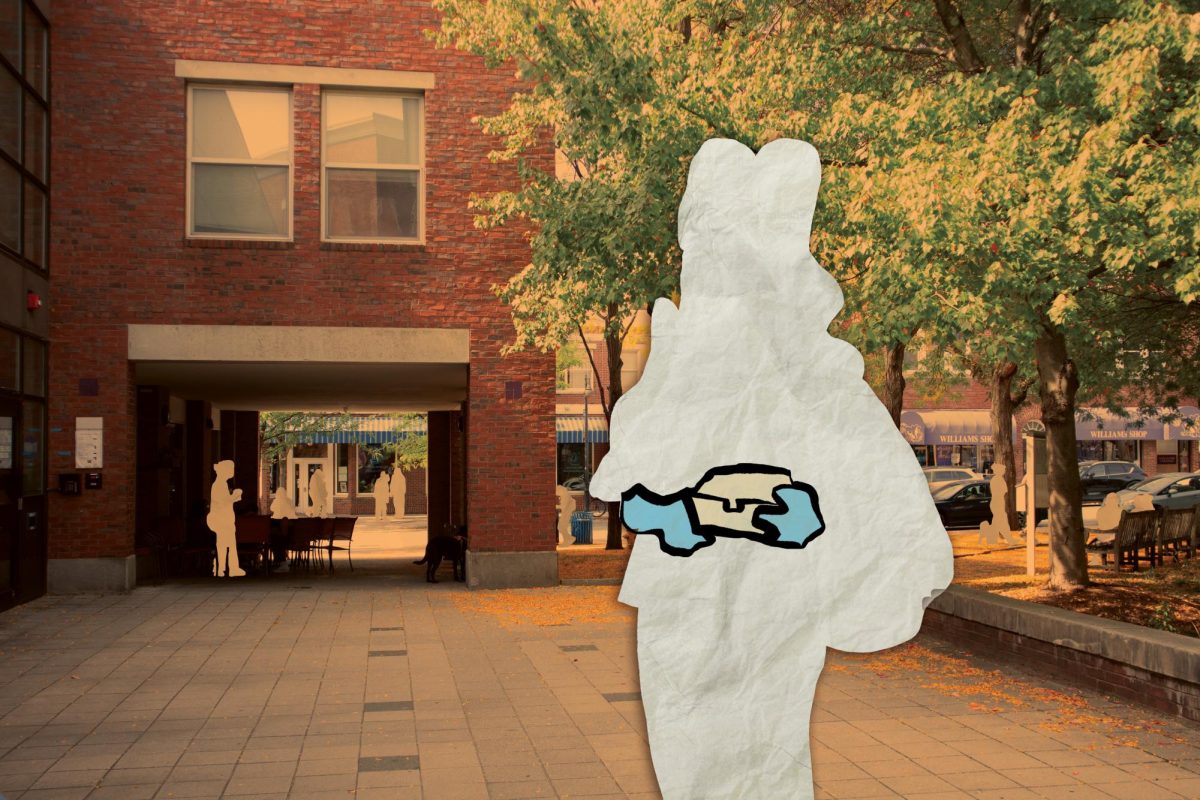Images in Review: Tár misses mark
November 2, 2022

Directed, written, and produced by Todd Field, Tár is a bit like the first draft of an essay –– it’s got some good ideas, but it’s not put together in a tautly constructed, presentable way. Despite its high-brow intentions and artistic pretensions, Tár is aimless and unconvincing. Maybe they forgot to hire an editor? Maybe the script was unfinished? Whatever the cause, Tár promises much but fails to deliver. Though it doesn’t always stick the landing, Tár does make an earnest effort to engage with real world questions of victimhood, reputation, and artistry. For that reason, and for its intense lead performance, Tár is still worth seeing.
The movie follows Lydia Tár (Cate Blanchett), a composer-conductor with an impeccable resume who sows the seeds of her own downfall from the upper echelons of the classical music world. It’s clear from the get-go that the film will consider the challenges of being a public figure in our social media age. The opening shot shows Tár being filmed by an iPhone as she sleeps on a plane. The audience is immediately drawn in by the scene and the questions it raises –– who is filming Tár? Why is this person streaming the footage online? My interest was piqued.
Field then decides to subject us to an hour of boredom and wasted potential consisting of a seemingly endless parade of pretentious conversations, meetings, and interviews, each more painfully fabricated than the last. First, Tár is interviewed by a writer for The New Yorker. When asked about her conducting method, Tár says that “Time is everything.” I was left wondering why Field himself didn’t follow this advice. Tár moves on to a meeting with a fellow conductor, but their conversation goes on far too long. Neither of these scenes do a particularly good job of introducing the audience to the film’s characters or creating real plot conflict –– which would be fine if either felt necessary, enjoyable, or interesting. They don’t, though, and that’s where Field’s film most often misses the mark.
There is one scene in this first hour that, at least at first, seems to be going somewhere. During one of her conducting classes at Juilliard, Tár belittles a student, Max (Zethphan Smith-Gneist), for disliking composer Johann Sebastian Bach. Max, self-described as pangender and a person of color, takes issue with Bach’s misogyny as a white, cisgender man who fathered some twenty kids. Tár personally targets Max, who is left feeling alienated and attacked. While the scene was uncomfortable to watch and engaging in a way the film’s first thirty minutes hadn’t been, it somehow felt engineered. Having known before watching Tár that it would deal with cancel culture, I encountered the scene not as something novel and interesting, but rather as yet another play on the media trope of the out-of-touch boomer and the “woke” student. Ultimately, as a viewer, I felt like I had been manipulated by Field’s reliance on exaggerated caricatures over psychologically rich characters. Why couldn’t Max’s argument about Bach have been a bit more nuanced? Field seemed to intentionally paint Max as the stereotype of the unbudging, absolutist Gen Z-er when he could have granted the character a lot more complexity. I find it hard to believe that any student who is studying conducting and composition at Juilliard hates Bach that much just because he had a lot of kids.
After this scene, more is slowly revealed about Tár and her controlling patterns of behavior. We learn that she had an affair with a student named Krista in her conductor training program. Their relationship soured and, as a form of revenge, Tár made sure that Krista would never get a job in any major orchestra, eventually leading to Krista’s suicide. As news of this slowly emerges, Tár tries to keep control of her home orchestra, though she increasingly alienates her musicians by unfairly favoring Olga (Sophie Kauer), a new cellist in the group. Tár is attracted to Olga and tries to get romantically involved with her, but Olga refuses her advances. Slowly consumed by obsession and paranoia, Tár’s life begins to fall apart. Some of the film’s best moments are in its second half, as we watch Cate Blanchett’s riveting portrayal of a controlling megalomaniac no longer in control.
And yet, I found it hard to care about the storyline even as it was unfolding. Is the audience supposed to sympathize with Tár or despise her? I mostly felt indifferent, mainly because none of the characters are fleshed out enough for viewers to really engage with their stories. Even though Blanchett’s performance is intense and gripping, I never forgot for a moment that she was acting and that none of this was real. The weakness of the film’s script and looseness of its construction pulls us out of any sense of realism.
When all is said and done, Tár’s true Achilles’ heel is that the film is simply far too long. I could easily imagine the filmmakers shaving an hour off its nearly three-hour running time without losing much. And I’m somebody who likes long movies –– I don’t think there’s any objective length that is too long. Tár could be seven hours long and work better than it does now if every scene made sense, pushed things forward, or at least didn’t feel like a drag. As it is, Tár has far too many of these moments to make it work as a cohesive film.
I still want you to see this movie, though. Despite everything I’ve said above, it is thought-provoking, and Blanchett’s performance has rightly been called a tour-de-force. Maybe I’m wrong about its length and construction –– maybe each and every scene I’ve called unnecessary in fact held some hidden gem of meaning that I failed to detect. Go with a friend, enjoy it, and have a nice conversation afterwards. Despite Tár’s many flaws, it’ll be worth it.
Images is screening Tár until Nov. 10.








